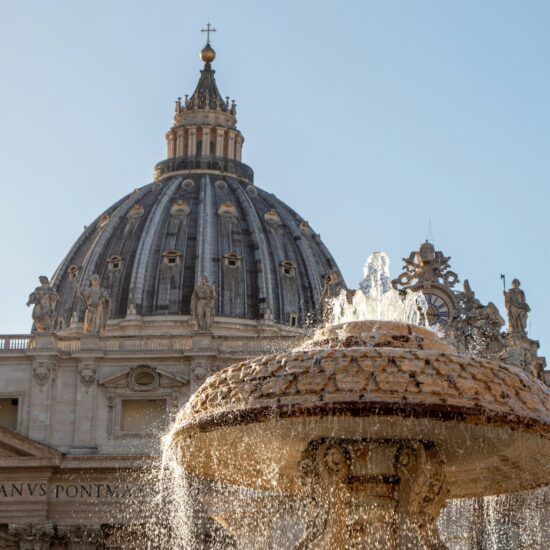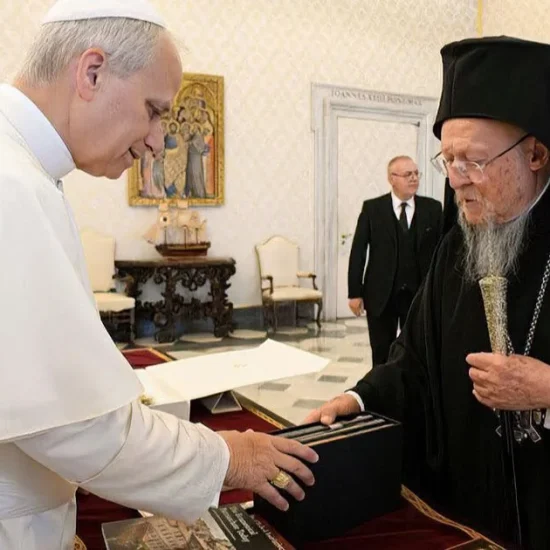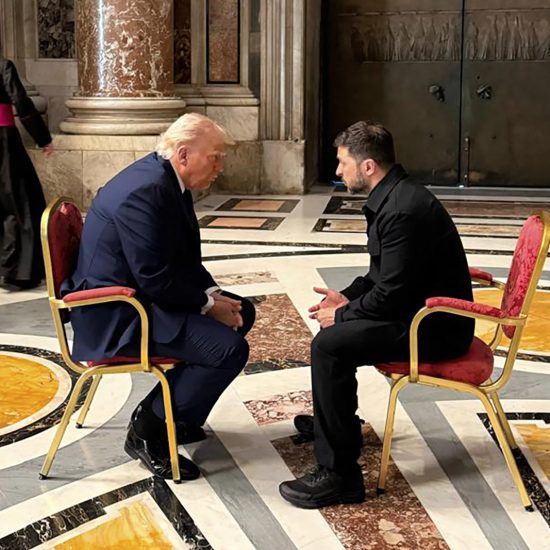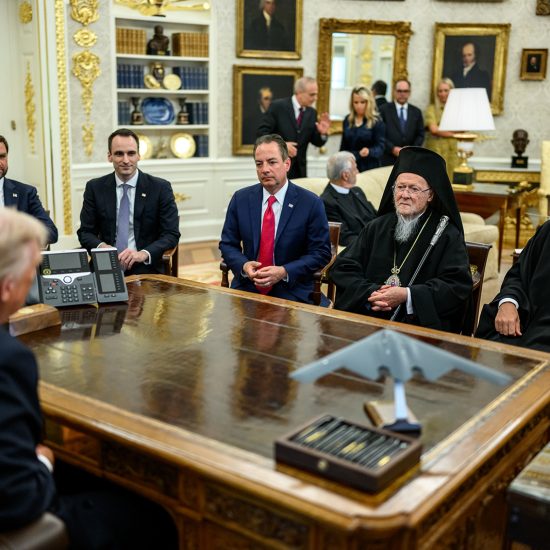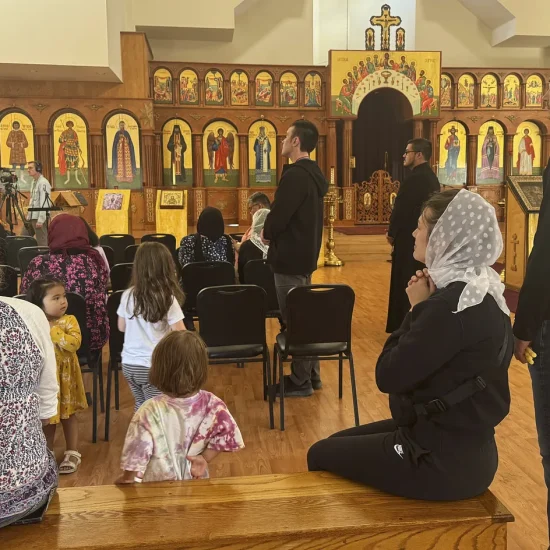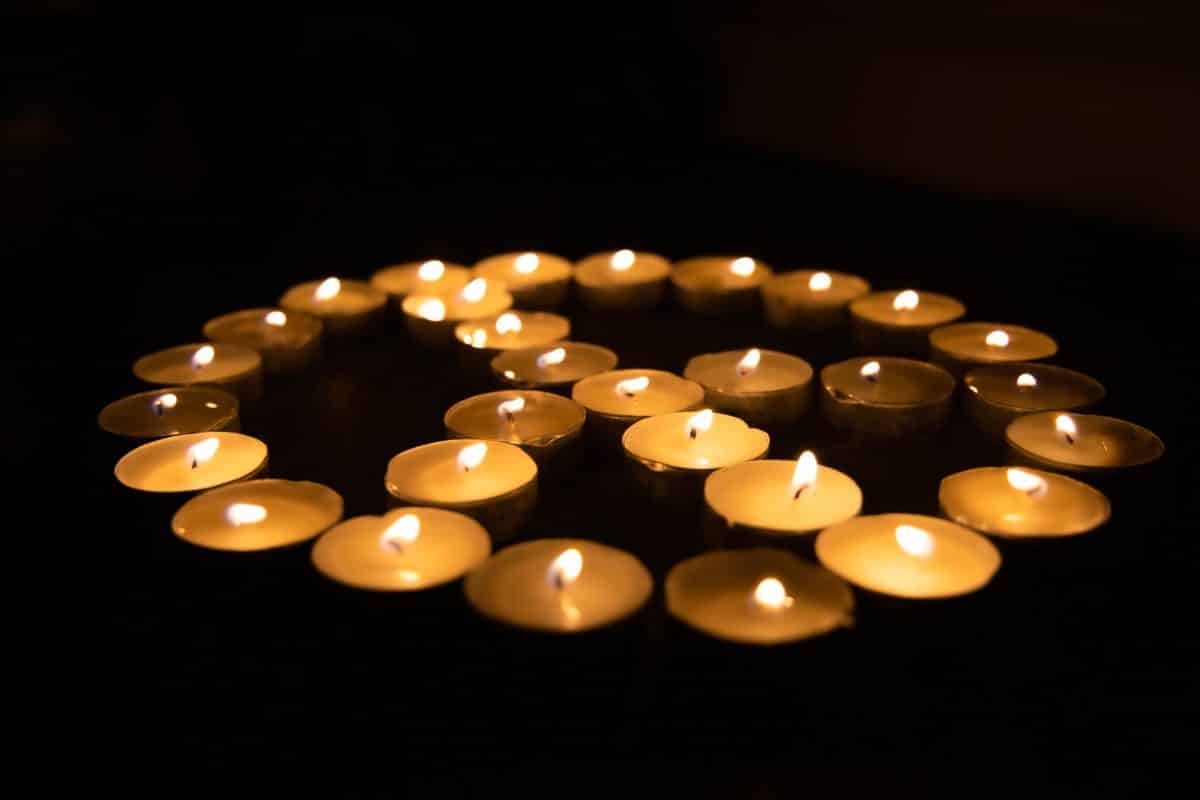
Almost immediately after the first shells fell in Ukraine, prayers for peace rose to heaven from the collective lips of the world. But in times of crisis, do we sometimes need to petition god for violence in order to achieve lasting peace? Are there situations that merit appeals to the divine to guide the use of force? Can (and should) we pray for war?

John Sianghio
Prayers for peace have become the standard response from Christian clergy and other religious leaders in times of violence. The general public tends also to respond with some form of #thoughtsandprayers. Social media is awash with #prayforUkraine, the tag almost always following calls for a ceasefire and the ultimate laying down of arms. Our common prayer as a world society is for swords to be beaten into plowshares, and to forge from these a path to peace.
In response to the Russian invasion of Ukraine, Archbishop of Canterbury Justin Welby tweeted a poignant, almost poetic prayer appealing to the “God of Peace and Justice” to bring “peace and the laying down of weapons” specifically “for the people of Ukraine.” While the Archbishop’s prayer itself is not a direct denunciation of war, he makes his position against the resort to force in Ukraine plain in statements he has given surrounding the Ukraine crisis.
In a statement released by the Church of England, the Archbishop said: “Placing our trust in Jesus Christ, the author of peace, we pray for an urgent ceasefire and a withdrawal of Russian forces. We call for a public decision to choose the way of peace and an international conference to secure long-term agreements for stability and lasting peace.”
Indeed, in his thought for the day on BBC 4 on February 24, the Archbishop seemed to argue that war could never bring about the justice for which he prayed saying, “We seek peace and justice, and that must end with those involved in conflict not having solutions imposed on them but finding for themselves the way forward to reconciliation and peace.” The Archbishop added the admonition that people of faith must seek peace not by force of arms, but rather “find our resolution, our peace, our certainty not by screwing up our courage, but in the knowledge of the eternal arms that hold us.”
The notion of spiritual non-violence movements as a contrast to war has been a powerful ideological force, especially in the aftermath of World War II. During that conflict General Patton famously ordered Chaplain Father James Hugh O’Neill to draft a prayer for good weather that the Third Army might “crush the oppression and wickedness of [their] enemies, and establish [god’s] justice among men and nations.” In contrast, post-War figures like Mahatma Gandhi and Martin Luther King, Jr. defeated established empires of oppression, not by martial means, but by marshaling the power of peaceful resistance. King specifically, rooted in the peace theologies of the New Testament, turned to the power of “soul-force,” non-violent spiritual fortitude, to overcome physical force. King’s prayers were not only for peace and non-violence in the domestic realm, his sermons delivered in the shadow of the Vietnam war denounced international conflict and war as the tool of the tyrant.
The Civil Rights movement is certainly an exemplar of prayers for peace answered. There certainly is power in non-violence and potency in the prayers that King and his partners in peaceful protest against racial oppression in the United States lifted up to god with their lips and their legs. But, despite the success of civil rights and King’s denunciation of war, are such prayers and such means sufficient to address international crises, interstate war, invasion, and aggression? The ideological power of non-violence and civil disobedience does not translate well to the realm of interstate war. The conflicts of the 19th and early 20th Centuries provide ample evidence of this fact, and the human rights disasters of the late 20th and 21st Centuries even more.
Nadia Murad is a Yazidi advocate and firsthand witness to the horrors of war and mass murder. Her Yazidi community was massacred by ISIS. Murad declares that in the face of heinous violence and the destruction of infrastructure essential for community flourishing, that “promises of never again” and “thoughts and prayers…they are not enough.” Murad instead calls for the international community to hold those responsible for Yazidi genocide to account. Falah Mustafa Bakir, former foreign minister of Iraqi Kurdistan, the native land of the Yazidis, put the point more plainly. In 2014 Bakir called for military intervention and support from the international community to fight ISIS, rescue the Yazidis, and return stability to Kurdistan. In light of crises like that of Kurdistan and now of Ukraine, must we sometimes perhaps petition god not with peace marches as the civil rights activists did, but rather with the left-right-left march of military boots on the ground? The question is complex.
Certainly, a cursory glance at the New Testament demonstrates Christ’s abhorrence of war. “Blessed are the meek, for they will inherit the earth,” says the Christ of Matthew. “Blessed are the Peacemakers” he goes on to say, “for they will be called children of God.” Later in the same chapter of Matthew Christ commands the crowd when confronted directly with violence, to “turn the other cheek.” He even tells Peter at his arrest recounted at the end of the same Gospel to “put up his sword,” with the famous warning that “those who live by the sword, will die by it.”
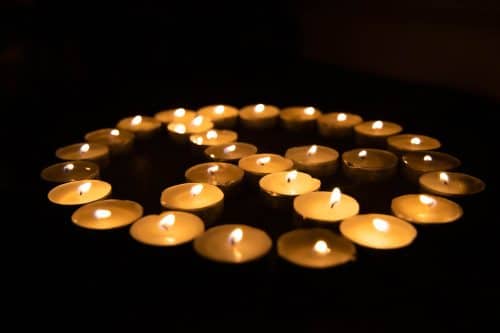
Joshua Sukoff / Unsplash
But war is not a mere matter of a slap in the face. It is too often a matter of mass death and widespread oppression. Those who would make peace, who would make justice in those situations, may sometimes need to resort to violence. In such cases, should the prayers we lift up not be for blessing upon those peacemakers, the works of their hands, and the strength of their arms? Should we not pray for war? There is biblical precedent for this too.
The Psalms are among the most influential prayers in the Christian tradition. These musical prayers of praise, petition, and often pain continue to inspire and instruct Christian communication with god. The Psalms, like the Gospels, are full of images of peace. Psalm 37 seems, at first glance, to fit the pattern of a prayer for peace that is also a condemnation of war.
Indeed, Psalm 37 parallels the comments on peace found in Matthews 5 discussed above saying, “blessed are the meek, for they will inherit the land,” in verse 11. Like Matthew 5 there is a command, when faced with violence, to turn away from wrath. Verses 14 and 15 seem to associate war with the “way of the wicked,” arguing that it is the wicked that will “draw the sword and bend the bow.”
But the Psalmist himself was a warrior–one who certainly longed for peace–but seemed to understand the sometimes necessity of war to secure it–and, crucially, the blessedness of such efforts. The biblical scholar A.R. Ceresko notes that psalm 121 famous for its tone of pilgrimage, pastorality, and peace is perhaps counter-intuitively also the prayer of a warrior. Ceresko notes that the first section of Psalm 121 shares imagery and tone with Psalm 91, sometimes called the “warriors prayer,” and one that scholars opine was perhaps a prayer for the King and the army as they set out for battle.
More explicit than these psalms mentioned by Ceresko is Psalm 144. In this prayer, the Psalmist blesses the lord who “trains [his] hands for war, [his] fingers for battle,” and speaks the more blatantly battle-hardened petition that the lord, “touch the mountains, so that they smoke. Send forth lightning and scatter the enemy; shoot [his] arrows and rout them.” But even here, the Psalmist points out that battle is in the service of and, importantly, the means to secure peace.
The last four verses of the psalm discuss the peace of security behind defenses that will not be breached and where no citizen fears captivity. Rather than a contradiction, there is a connection between war and peace in the prayers of the Psalmist. Can Christ’s vision of peace and the Psalmist’s prayer for victory coexist? St. Augustine provides a famous answer.
Augustine argues that all Christians, indeed all people, must pray for and aim their acts toward the ideal of peace. However, that ideal of peace may justifiably and perhaps even necessarily be secured through the means of war. In his reply to Faustus, Augustine asks the question, “what is the true evil in war? Is it the death of some who will soon die in any case, that others may live in peaceful subjection?” Augustine argues that death is not the true evil in war and that to avoid death in favor of “peaceful subjection” is not “any religious feeling,” but rather a form of cowardice.
Augustine argues instead that “the real evils in war are love of violence, revengeful cruelty, fierce and implacable enmity, wild resistance, and the lust of power.” When these evils are at play, Augustine says that using force to restrain these things is a form of “obedience to god.” To restrain and repulse those who love violence and lust for domination is, for Augustine, the reason that “good men undertake wars,” and, I add, that good people may perhaps pray for war.
John Sianghio is a Ph.D. candidate in religious ethics at the University of Chicago Divinity School. His work focuses on the intersection of social and political ethics with religion. Formerly, John was Assistant Professor and Chair of the Department of Political Science at Trinity Christian College in South Suburban Chicago. As a political scientist, he has also worked in think tanks, human rights NGOs, and federal service. During Operation Enduring Freedom he served as an embedded asset advising U.S. Army units in Afghanistan. He lives on the South Side of Chicago with his wife and son.

